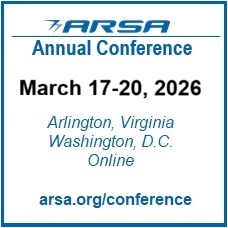CASA Resources: “Human Factors”
ARSA staff continually search for resources, guides, and tools that might be useful for our members as they work to ensure global aviation safety. Today’s installment comes from the Land Down Under via the Australian Civil Aviation Safety Authority (CASA).
Human Factors
The term human factors refers to a wide range of issues that affect how people perform tasks in various environments. Whether a technician is performing line maintenance, a comprehensive avionics check, or at home preparing dinner for family, there are a variety of social and personal skills that complement the necessary technical acumen for appropriately completing their work.
By fully exploring and understanding the human capabilities and limitations involved in maintenance operations, your business can develop the best possible fit between your people and the technical systems in which they work.
CASA Resources
CASA’s Human Factors for Engineers resource kit contains a series of guides, workbooks, and videos designed to provide a strong focus on human factors training within the aviation environment. This content includes:
- A variety of useful models (including PEAR—People, Environment, Actions, Resources) for managing human factors in maintenance
- A series of practical examples
- International regulatory requirements (including FAA documents),
- Strategies for mitigating problems
Praise from the FAA
Recently the Federal Aviation Administration’s chief technical and scientific adviser, Dr Bill Johnson, praised CASA’s human factors training resources. “I have never seen a more professional and comprehensive package,” Mr Johnson said. “It is the new international yardstick (or metric ruler) by which other human factors training programs will be measured.”
To access the resource kit: click here.
To access CASA’s full list of online offerings: click here.
Excerpt from CASA’s Human Factors Resource Guide for Engineers:
Using the ‘Rule of three’ in the field
One of the company’s Cessna 31Os has encountered a propeller control problem en route and has diverted to an intermediate field for a precautionary landing. The pilot reports that the aircraft has diverted and is now AOG. The company has dispatched you and the maintenance supervisor to sort out the problem. The passengers have been picked up and delivered to their destination in the spare aircraft. The chief pilot wants the aircraft repaired and returned to base as soon as possible the following day to pick up a charter the following evening.
The aircraft requires a prop change. It’s been a long day and you and the maintenance supervisor are approaching the end of your duty limits – a situation classified as ‘amber’ (use caution).The aircraft is parked in the open beside the aero club hangar. The weather has turned very blustery and a rain cell is approaching – again, amber. The sun is about to go down and although you have powerful hand-held torches (flashlights), the lack of lighting could cause difficulties with the prop change – amber.
Three ambers mean STOP. You now need to re-assess the situation. What options are there?
- When is the aircraft actually required back at base?
- Can you delay the task until the weather improves?
- Can the prop change wait until first light tomorrow?
- Is it possible to contact the on-site aero club to request the use of their hangar?
After you have reviewed the options, you have to decide how you will manage the risk. That answer depends on the context.
Your enquiries reveal that the spare aircraft can actually pick up tomorrow afternoon’s charter; and the president of the aero club has offered the aero club hangar for you to complete the prop change. Rather than just ‘getting on with it’, stopping, taking the time to find out more and review your options now substantially reduces the risk level associated with the task.








